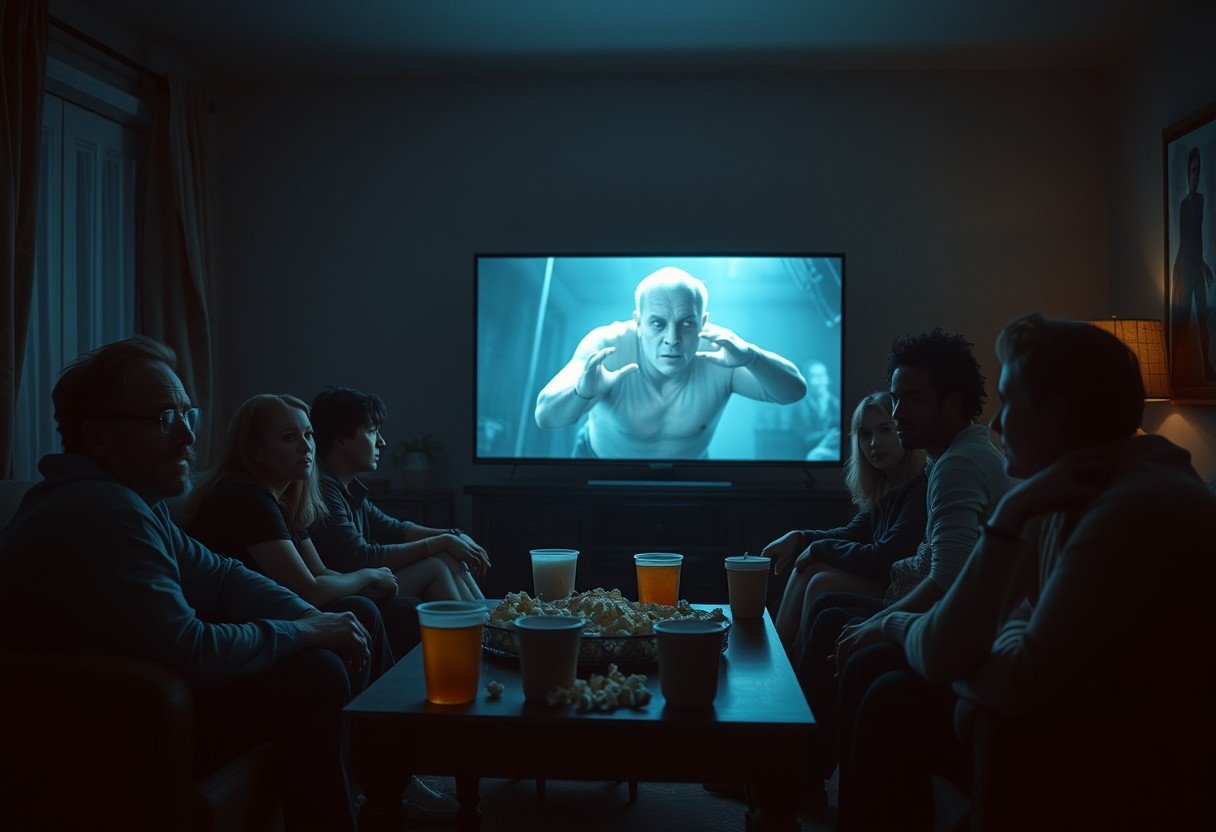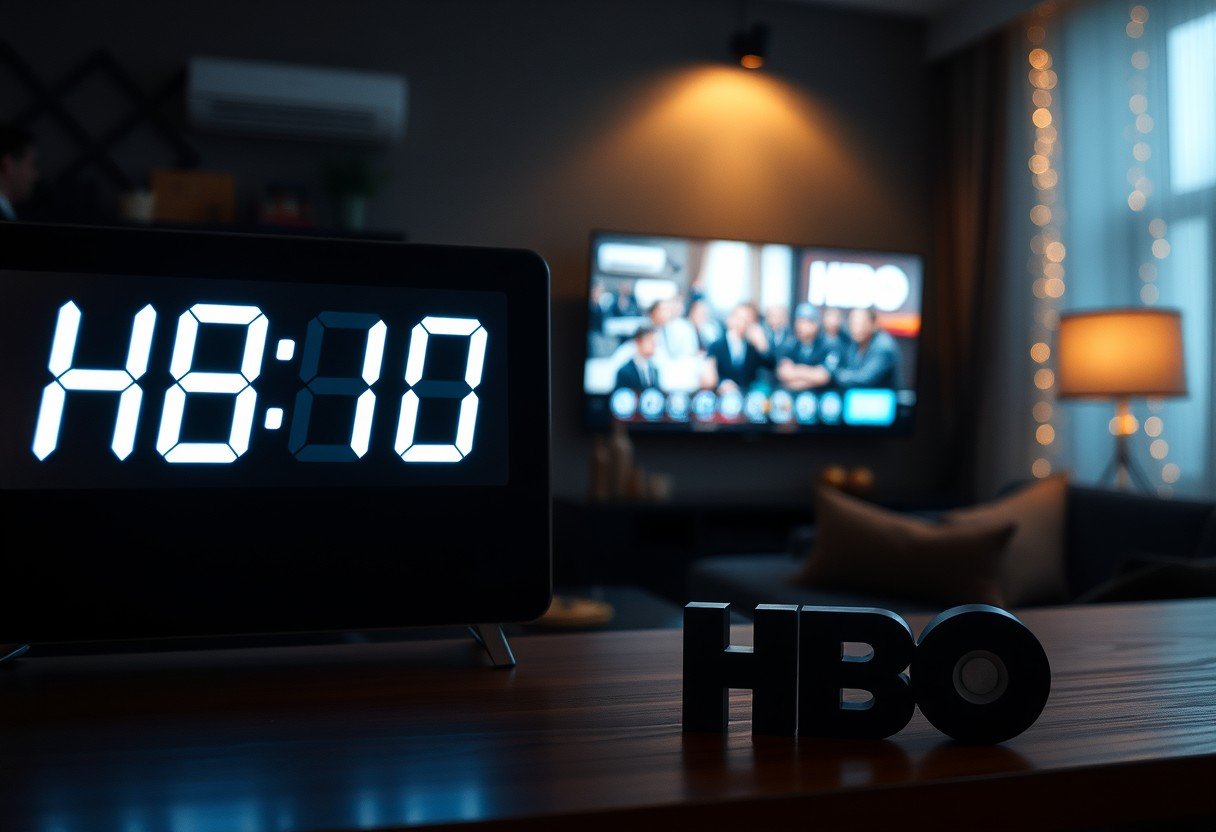Have you ever wondered why you enjoy the feeling of being scared while watching a horror movie? People are drawn to these films for complex psychological reasons, from the adrenaline rush of fear to the comfort of confronting it from your couch. Understanding these motivations reveals a lot about our fascination with the dark and unknown, showing how horror can be a thrilling, social, and even therapeutic experience.
The Unique Thrill of a Controlled Scare
One of the biggest draws of horror is the intense physiological arousal it creates. When you watch a scary scene, your body’s natural “fight or flight” response kicks in. Your heart rate increases, your palms might sweat, and your senses become heightened. This is your body releasing adrenaline as if you were in real danger.
However, your brain knows you are safe on your couch. This conflict between your body’s reaction and your conscious knowledge creates a powerful adrenaline rush without any actual threat. This experience allows you to feel the excitement of danger in a completely controlled environment. For many, this safe thrill is a powerful form of entertainment that is hard to find elsewhere.
This controlled fear can be incredibly exhilarating. It taps into our primal instincts for survival but repackages the experience as fun. After the movie ends, the lingering arousal can transform into a feeling of euphoria and relief, making you want to come back for more.
Finding an Emotional Release through Catharsis
Horror movies can also serve as a form of emotional release, a concept known as catharsis. By watching characters navigate terrifying situations, viewers get a chance to confront their own anxieties and fears in a manageable way. This process can be surprisingly therapeutic, allowing you to process emotions you might normally suppress.
Watching horror provides a safe outlet to experience and purge negative feelings like fear, stress, and anxiety. When the film ends and the hero defeats the monster, you may feel a sense of relief and empowerment. This vicarious victory can leave you feeling lighter and more in control of your own emotional state.
This purging of emotions explains why some people feel refreshed or even calm after watching a particularly scary movie. It’s a way to face the darkness of the world and our own minds, emerging with a renewed sense of security and a better understanding of our own fears.
How Horror Movies Bring People Together
Watching horror is often a social activity, and for good reason. Experiencing intense emotions with other people can create strong social bonds. When you and your friends jump at the same scare or laugh in relief afterward, you are creating a powerful shared memory.
The communal aspect turns fear into a fun and memorable event. These shared experiences foster a sense of camaraderie and connection. The collective gasps, screams, and laughter amplify the emotional impact of the film, making it more enjoyable than watching alone.
Social norms also play a role. If watching horror movies is popular within your peer group, you are more likely to engage with the genre to feel included. These cultural influences shape our viewing habits and help turn a solitary scare into a community event.
The Brain on Horror: A Chemical Cocktail
From a biological standpoint, your brain on horror is a fascinating place. The fear you feel triggers a cascade of chemical reactions designed to help you survive, but in the context of a movie, these chemicals create a unique form of pleasure.
Your brain doesn’t just flood with stress hormones. To counteract the fear, it also releases powerful neurotransmitters that make you feel good. This creates a strange but appealing mix of fear and enjoyment.
- Adrenaline: Released during tense moments, this hormone increases your heart rate and alertness, creating the signature “rush” of watching horror.
- Dopamine: As you anticipate and experience scares, your brain can release this neurotransmitter, which is associated with pleasure and reward.
- Endorphins: These natural pain relievers can be released in response to intense fear, sometimes creating a feeling of euphoria after the threat has passed.
This complex chemical cocktail is why the fear induced by horror can feel so rewarding. Your brain essentially rewards you for enduring the stressful situation, which reinforces the desire to seek out the experience again.
Are You Wired for Horror? Personality and Preference
Not everyone enjoys horror, and personality plays a big role in who seeks out scares and who avoids them. Certain personality traits are strongly linked to a preference for the horror genre, explaining why your best friend might love scary movies while you prefer comedies.
Individuals high in a trait called “sensation-seeking” are often drawn to horror. These people crave novel, intense, and thrilling experiences, and horror movies deliver exactly that. They enjoy the adrenaline rush and are less likely to be overwhelmed by the frightening content. The same is true for those with a higher tolerance for risk-taking, as horror provides a safe way to flirt with danger.
| Personality Trait | Relationship with Horror Movies |
|---|---|
| High Sensation-Seeking | Drawn to the intense stimulation and adrenaline rush provided by horror films. |
| Low Neuroticism | Less likely to experience lingering anxiety, allowing them to enjoy the fear without negative after-effects. |
| Openness to Experience | Appreciate the creativity, novelty, and exploration of dark themes common in the genre. |
Understanding these traits helps explain why horror is so polarizing. Your personal wiring can determine whether a scary movie is a fun thrill ride or just a stressful experience.
Why We Can’t Look Away: Curiosity and Escapism
Two other powerful motivators for watching horror are simple curiosity and the desire for escapism. Humans have an innate curiosity about the darker side of life, including death, monsters, and the unknown. Horror films allow us to explore these taboo subjects from a safe distance, satisfying our curiosity without facing any real-world consequences.
Furthermore, horror offers a potent form of escapism. When you are engrossed in a terrifying story, your own real-life problems and stresses tend to fade into the background. For 90 minutes, your biggest worry is the monster on the screen, not your upcoming deadline or personal anxieties.
This temporary escape can be a welcome relief from the pressures of daily life. By immersing yourself in a fictional world of fear, you give your mind a break, which can be both distracting and refreshing.
Frequently Asked Questions about Watching Horror Movies
Why do I enjoy horror movies even though they scare me?
The enjoyment comes from a mix of psychological and biological factors. Your brain releases pleasure-causing chemicals like dopamine and endorphins to counteract the fear, creating a rewarding sensation. This happens in a controlled setting, so you get the thrill without the actual danger.
What is ‘catharsis’ in the context of horror films?
Catharsis is the idea that watching scary movies can help you release pent-up emotions like anxiety and stress. By confronting fear in a safe, fictional environment, you can process your own feelings and experience a sense of emotional relief afterward.
Does my personality determine if I like horror movies?
Yes, personality traits play a significant role. People who are high in sensation-seeking and openness to experience are often more drawn to the intense and novel stimulation that horror provides. Conversely, those with higher levels of anxiety may find the genre too stressful.
Is it better to watch horror movies with other people?
Watching horror with others often enhances the experience by creating a sense of social bonding. Sharing the fear and excitement with friends can make the scary moments more manageable and fun, turning the event into a memorable shared experience.
Are there any real benefits to watching scary movies?
Beyond entertainment, some experts suggest horror films can help build resilience. By exposing yourself to frightening scenarios in a controlled way, you can practice managing fear and develop better coping strategies for real-life stressors.







Leave a Comment